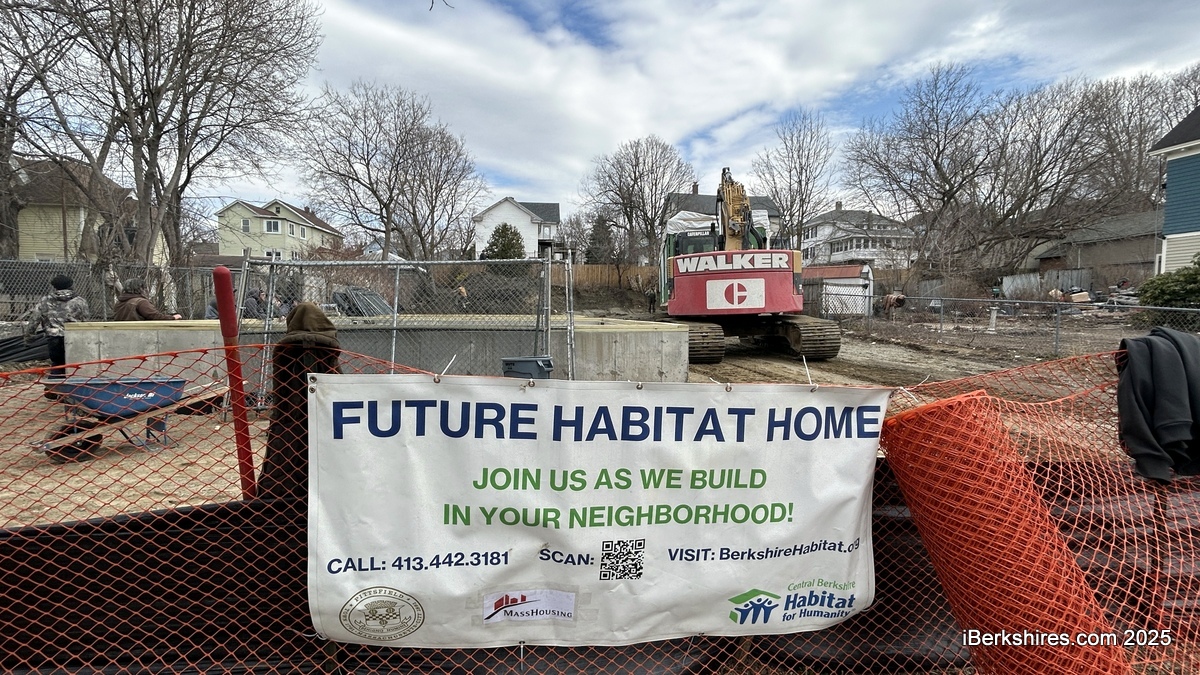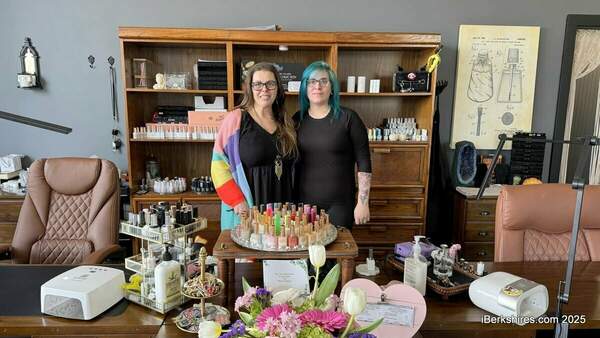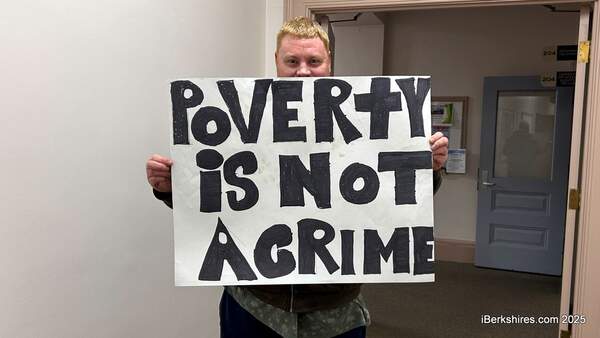

Sheriff Candidates Answer Community's Questions at Forum
PITTSFIELD, Mass. — The candidates for Berkshire County sheriff answered questions from the community in a forum held by the Berkshire County NAACP, the League of Women Voters, and the ACLU of Massachusetts on Wednesday.
Incumbent Thomas Bowler and his challenger Alf Barbalunga were queried on the interworkings of the office and their stances on national issues related to the position during the Zoom event.
"I always talk about how important elections are, and I always talk about the political scene. We know that there's nothing more important than local politics," Berkshire NAACP President Dennis Powell said.
"So it's really important and we feel it's our responsibility as the NAACP to educate our community at election time on the various candidates running so that you can clearly make the right decision."
The event is a part of the ACLU of Massachusett's "Know Your Sheriff" public education campaign to build voter awareness and educate people on the role of the sheriff.
Bowler began his career in law enforcement in 1985 with the Pittsfield Police Department, was sworn in for his first term as sheriff in 2011, and was re-elected in 2016.
Barbalunga has 28 years of combined corrections, law enforcement, and public safety experience and currently works as the chief probation officer of the Southern Berkshire District.
An ACLUM poll found only 17 percent of voters in the state could name their sheriff in a poll. In Berkshire County, only 10 percent could.
"We firmly believe that educating voters for those voters to be able to go and vote based on their values," said ACLUM's Javier Luengo-Garrido. "And the clarity of information is paramount for us to do that and this campaign reflects that."
A considerable amount of conversation was focused on the incarcerated women of Berkshire County who are sent to the Western Massachusetts Regional Women's Correctional Center in Chicopee.
Meg Bossong, director of sexual assault response and health education at Williams College, said she had heard during a 2019 Commission on the Status of Women hearing that the women and their families faced a great deal of hardship in terms of family separations and people's ability to visit.
"The explanation is that there's a lot more programming and a lot more facilities available in the Western Mass facility but the feedback from the folks we spoke to is that on return to the community, there are very few services available for them," Bossong said. "In the county, they're often still having to travel to Springfield for various kinds of meetings and appointments."
She asked both candidates what their plans are to better serve the county's incarcerated women and if either had plans to return them to the House of Corrections in Pittsfield.
Bowler defended the services offered at the Chicopee facility and said the Second Streets Second Chances initiative will service individuals upon release.
The one-stop facility, which has received more than $240,000 in funding from the Baker-Polito administration, is designed to offer a wide array of post-incarceration services, case management, and workforce training from the former jail on Second Street.
"I still stand by that the services that these individuals are receiving at the Chicopee Center are far greater and far more than we have here," Bowler said.
He said the facility became a national model in January through the American Correctional Association for its role in the services and programs.
Barbalunga advocates for returning incarcerated women from the Chicopee facility.
He said that are $21 million in reasons to support them and that it is difficult for families to visit due to demographics, economic disadvantage, racial disparity, and insufficient public transit.
"I feel more comfortable if I'm watching my kids in my own house than if they're five blocks away and someone else is watching them," he added. "That's just the purity of it."
The candidates were asked if they plan on cooperating with U.S. Immigration and Customs Enforcement. In the ACLU's presentation on the role of the sheriff, it was mentioned that the position can enter into contracts with the federal government, one being with ICE.
Barbalunga responded by saying that while he does not endorse federal inmates or detainees being housed at the jail, he believes in fully utilizing the House of Corrections by bringing female inmates and juveniles back to it.
Bowler said that if an individual is incarcerated and has charges in the county and has an ICE detainer on him, the office will notify ICE that the individual may be released from court.
"We do not hold detainees here for ICE," he explained. "Basically I took an oath of office to follow and to uphold the laws of the commonwealth, other than that, no, we do not plan to continue working or never have worked with ICE."
This comment did not sit well with one of the forum attendees Kelan O'Brien, who wrote a comment in the Zoom chat.
"Sheriff Bowler, I appreciate what you say you think you are doing by saying you 'don't work with ice.' A call to them that someone with a detainer alert will be at court is in fact directly working with them and aiding the deportation of our neighbors. No thank you," he wrote.
The candidates were asked what personal works, study training, and reflection they have engaged in to understand the history of race and incarceration in the country and region.
Bowler said his understanding is rooted in the relationships he has built in the community throughout his career.
"I have built tremendous relationships with the individuals in the Black community as well as the white community on the West Side," he said.
"These are individuals, many of whom I have arrested but also many of those same families where I had to arrest some of those individuals, I also went to their funerals or members of their families' funerals. So I have built many, many and forged a number of relationships with the Black community down on the West Side over my years as a police officer."
Bowler added that he went to a diverse middle and high school in the city and then went on to American National College in Springfield, which was also diverse.
"A lot of my friends, associates, colleagues, athletes, friends, were all of people of color and from different cultures," he said.
"So it's never been really any training that I've gone to, it's just my own personal life and who I am as a person and how I treat people in the society."
Barbalunga said he has been involved with The Gathering at Durant Park, which is now replaced with the city's Juneteenth festival.
He said he was the trial court's first Western Mass Cultural proficiency champion, which included training, and a statewide cultural diversity award in 2019 and 2021.
The candidates were also asked about their views on the Supreme Court's decision to overturn Roe v. Wade, which guaranteed a federal right to abortion.
Bowler clarified that abortion is not a function of the sheriff's office but spoke in support of reproductive rights.
"I think the decision that just came down with the Roe versus Wade was totally disgusting," he said. "Every woman should be allowed to make the choice when it comes to abortion. It should be left up to them."
Barbalunga said he is a Catholic but is still pro-choice.
"Let's keep it fully real. For me, that's a close one. I'm Catholic. I went to a Catholic college. I was confirmed in college, but at the end of the day, you have to make hard decisions and publicly tell people what they deserve to know," he explained.
"I am absolutely pro-choice, bottom line. Part two of that. I would absolutely not effectuate any arrest for someone coming into the commonwealth to achieve or attempt to achieve that procedure."
More than 100 people attended the forum. It was reported that next month's forum on Aug. 3 will include the district attorney candidates.
Tags: candidate forum, election 2022, sheriff,

















